Friday Dispatch: Abrupt but Intuitive Transitions
Gingerbread houses, dumb bills, and a sweet new year! 🍎🍯
“Abundance is a dance with reciprocity – what we can give, what we can share, and what we receive in the process.” ~ Terry Tempest Williams
Friday greetings,
First of all, I have to show you some photos from an afternoon outing to the Berkshires with my mom yesterday. It was the kind of September weather you want to bottle up but can’t so you savor it instead – blue skies, puffy clouds, no humidity, warm sun, soft breeze, dancing treetops, and just a hint of the changing colors that will be blazing a month from now.
We had lunch at the Starving Artist Cafe and Creperie (yum), then explored the forested ruins at the Ashintully Gardens in Tyringham (wow).
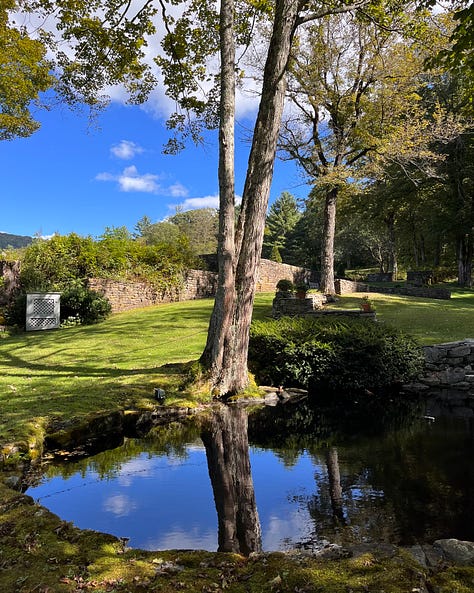
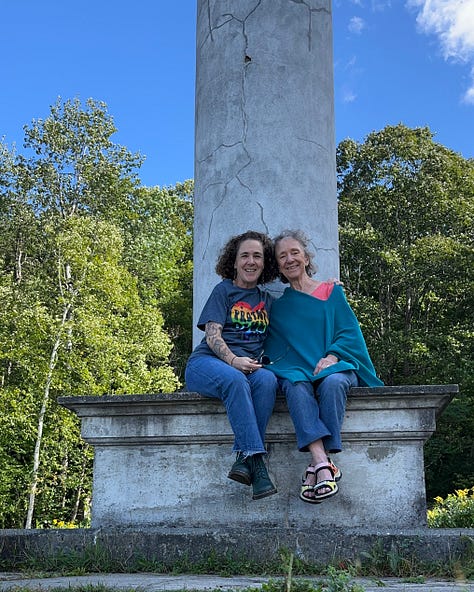

On our way back, we pulled over at Santarella Gardens, to take a picture of a veritable Gingerbread House. This stop led to an unexpected – and, as it turned out, illicit – little tour of one of the towers on the property, which the owners rent as an Airbnb. It was like stumbling straight into the pages of a storybook.
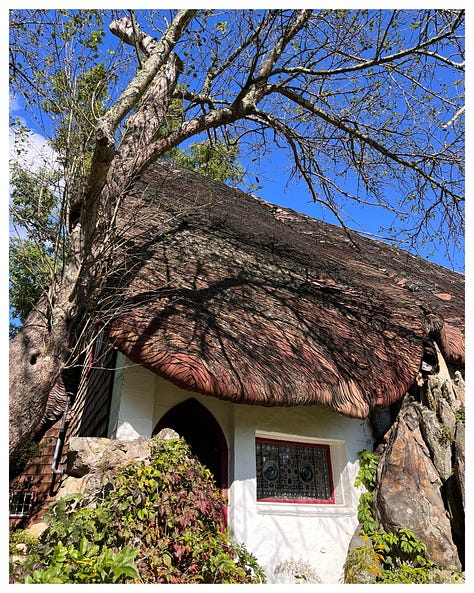
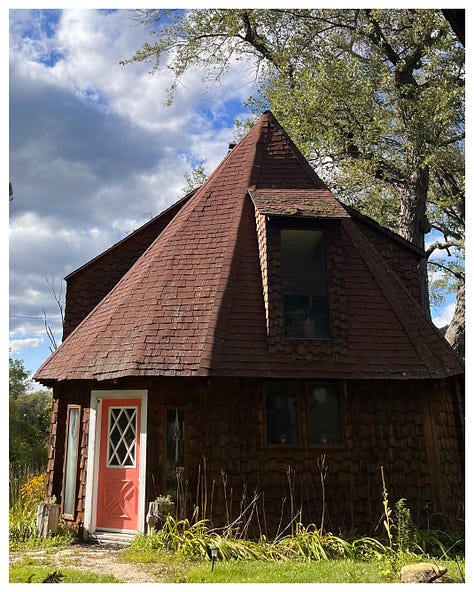
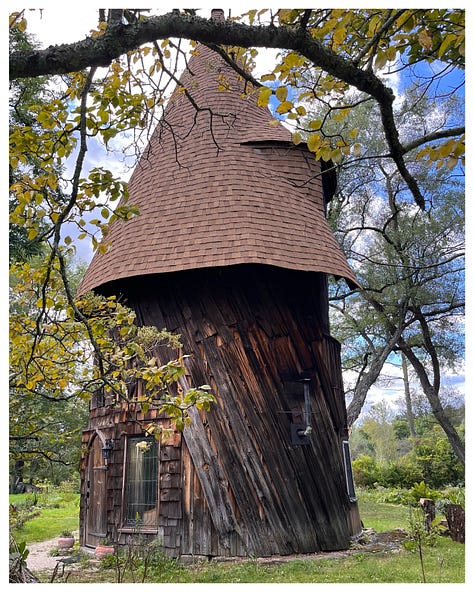
Still swept up from so much whimsy, I proceeded to get on the Mass Pike heading West instead of East, adding 15 miles to our trip home. AnnOYing – haha – but a small price to pay for such an unexpected enchantment.
Speaking of small prices to pay… here’s a seemingly abrupt transition (but if you’ve been following me for any amount of time, you know by now that this is how my brain works :).
I continue to offer all of my Substack posts for free. I don’t know whether I will fold in paid-only content at some future time, but honestly, putting much thought into that simply isn’t a priority for me right now.
So, the question arises: Why would you upgrade to a paid subscription (which is $5/month or $66/year) if you’re not “getting” anything extra?
I’ll say it straight: I am self-employed. For as much as I write, I do not earn my actual living directly from writing.
My income comes in many streams, from coaching individual clients, creating and facilitating writing groups and workshops, and editing work.
This “job” is a mosaic of a livelihood that took me decades to discover and another decade to build – and I love it. I love the variety of it, the wide range of folks I get to work with, and the incredible range of writing I get to read, witness, and support. I give thanks every single day for an abundance of meaningful work and a beautiful, full life.
As you know, I also write a LOT. And I share a LOT! I always have. I was the kid who would write a poem and immediately run to read it to my parents or share it with a favorite teacher.
My writing and sharing are so completely part-and-parcel with my work that I don’t think of them as separate. They are part of my lifeblood, the rhythm of my days, and the very fabric of my identity.
That being said, every bit of financial support I receive “just” to write breathes a bit of space into my world in a tangible way, as the cost of living has increased exponentially over the past decade. So much so that I find it kind of stunning.
As I write this, I think back on a podcast episode I listened to a couple of weeks ago when I was driving home from Maine. The podcast is called Classy, hosted by Jonathan Menjivar, and the first episode is called Are Rich People Bad? I highly recommend it. In an interview in Vogue, he says, “I think I just wanted a space where people would feel free to say that weird and bad stuff and also kind of dismantle some of our ideas about it. And talking about it allowed me and, I think, a lot of people who came on the show an opportunity to air it out a little bit and address it directly.”
I listened intently, intrigued and doing a lot of head-nodding. It is nearly impossible to be an American who isn’t in some way or another extremely class-conscious. Beyond the binary of “haves and have-nots,” there is the shrinking, so-called “middle class,” where you have to work harder just to cover the basics.
There’s also a constant pull, for me anyway, to recognize and name my considerable socioeconomic privilege while also experiencing life without a steady paycheck and the uncertainties that come along with that.
I hadn’t expected to delve into this here. But money is something we – the royal we, the collective we – don’t talk about openly yet is so often the elephant in the room.
Every time someone becomes a paid subscriber here, I feel supported. It is a way of saying that you appreciate the time and energy I put into this work. It is a way of saying my writing enhances your life.
It feels squirmy and audacious to write things down, but why?
This reminds me of the Barbie movie. I’ve got some Self-Effacing Barbie action going on here, i.e. oh little old me? But that is flimsy and inauthentic, and I think we all know on some level when we’re doing that.
The truth is, I want to own that my work matters, just as I want you to own that your work matters. I also want to own the coexisting facts that I choose to offer it freely, I love connecting with you here, and I need to pay my bills.
DUMB BILLS.
Does it kind of suck that monetizing our creativity is so commonplace? Well, yeah. It does.
Capitalism is dehumanizing and reductive. I resist it in many ways, which is why I continue to share are openly and freely as I do. I don’t want my writing to be yet another form of transaction.
That said, would it be game-changing for me if every person who regularly reads my writing – whether you’re here for the poetry, the Jewish and spiritual musings, the queer & trans advocacy, the writing-related encouragement, the real-life-happening reflections, ways for us to work together, or some combination of these – paid $5 a month or $66/year as a small gesture of reciprocity?
The answer would be yes. Being honest about that feels right and important because being honest and direct with each other is one of the greatest forms of kindness and realness.
To upgrade your free subscription, make sure you’re reading this post in a browser or on the Substack app, and click on the yellow “Upgrade to Paid” button.
And now for one more abrupt yet somehow intuitive transition, Rosh Hashanah begins this evening, and I want to share with you the 24 questions I’ll be reading during tonight’s services in my cherished capacity of Poet Laureate at the Jewish Community of Amherst:
Who do you want to be in the year to come?
Who do you want to meet in the year to come?
Who do you want to walk away from in the year to come?
Who do you want to listen to in the year to come?
Who do you want to make time for in the year to come?
Who do you want to distance yourself from in the year to come?
Who do you want to admire in the year to come?
Who do you want to love in the year to come?
Who do you want to laugh with in the year to come?
Who do you want to surround yourself with in the year to come?
Who do you want to learn from in the year to come?
Who do you want to learn with in the year to come?
Who do you want to teach in the year to come?
Who do you want to support in the year to come?
Who do you want to turn to for support in the year to come?
Who do you want to heal with in the year to come?
Who do you want to create in the year to come?
Who do you want to play with in the year to come?
What debts do you want to repay in the year to come?
What do you want to save in the year to come?
What do you want to release in the year to come?
Who do you want to protect in the year to come?
Who do you want to fight for in the year to come?
Who do you want to forgive in the year to come?
One of the themes of the Jewish New Year is sweetness.
There is such a sweetness, such a richness, in connection and community – in being here together, me writing, you reading, us working together, practicing, reaching inward to express the singularity of our experiences and outward toward the common ground that bonds us in our shared humanity.
This life is fragile. The Book of Life opens. Once again, we are blessed with the opportunity to do teshuvah – to return to our best selves. To take an inventory of where we went off the rails. To apologize and course correct. And to show our appreciation for the people who light our way on this narrow bridge between birth and death. May it be so.
Shabbat Shalom and Shana Tova,
Jena



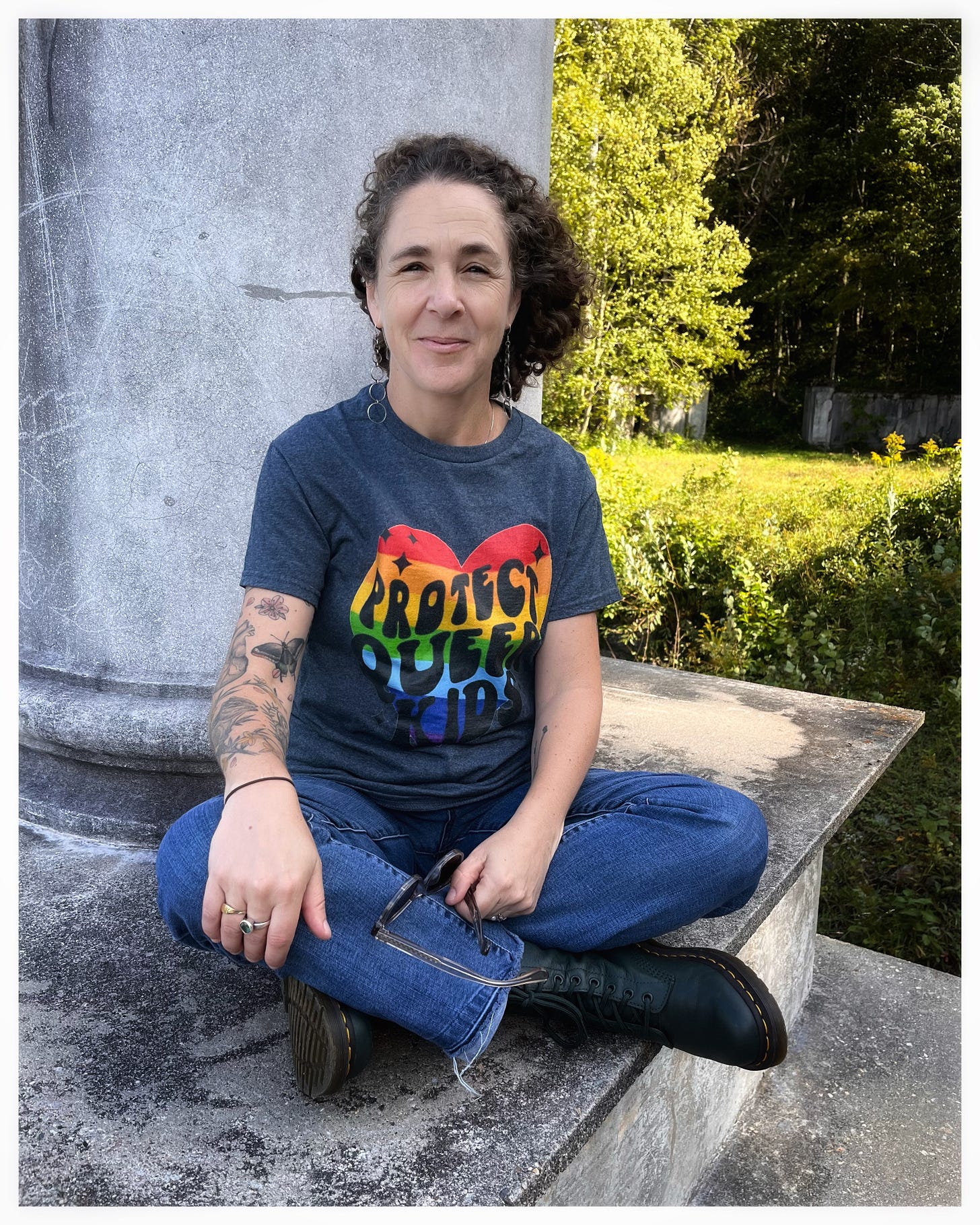
DUMB BILLS
This probably wasn’t the point of your essay but srsly 😡😘
I shared these questions with my Quaker Meeting. This is an amazing list for self-reflection. Thank you so much for sharing them with us.